
He wears a little green mask and a dapper outfit. He’s got a sidekick named Kato and a car
named Black Beauty. How could Seth Rogen not play the Green Hornet? I got a chance
to visit the set in Los Angeles and chat with Rogen and co-writer Evan Goldberg, which was
like watching great stand up. They told us a bit about how the project came about, Rogen’s
fancy costumes, having Oscar nominee Christoph Waltz as the bad guy and casting Jay Chou as
Kato. It’s not your usual superhero/sidekick relationship. (By the way, we got to talk to Chou.
His English is pretty broken so we can’t really bring you the interview, but he was incredibly
charming, even telling us jokes. Can’t wait to see what this guys does!)
Seth Rogen and Evan Goldberg
So can you talk about the genesis of your take on the GREEN HORNET? Were you always
GREEN HORNET fans? Was this something that you guys came across later on?
Evan Goldberg: Yeah, we both have always been GREEN HORNET fans. We all watched
the show and read a couple of the comics and, you know, watched the old serials.
Seth Rogen: But I wouldn’t say like we would sit around and be like “maybe one day
we’ll make a GREEN HORNET movie.” That was not how…
EG: Yeah, I watched it with BATMAN in the hour stretch of television. But it was just the
appeal of a giant action movie about a sidekick dynamic, really.
SR: Exactly. To us, this was more like a format to make a movie we’ve always wanted
to make. And this is what would let a studio give us enough money basically to do it in a way we
would want to do it, you know?
EG: And it’s a cool name and cool costumes.
SR: It’s a cool name…and there are several things about it that are wonderful. And
several things that are somewhat not very thought through and I feel like we addressed those
things well.
EG: Of a different era.
SR: Exactly. Of a different era. That’s a good way of putting it.
Like your wardrobe.
SR: Yeah, exactly. The vest, it’s nice.
I mean no one’s wearing this around now.
EG: Oh, they will be.
SR: Oh, they will after this. (laughter)
It’s what Prince is to purple.
SR: Exactly. It’s a Prince vibe. It has a Prince thing to it. I mean it’s a costume. We
make no illusions of the fact that this is a costume.
Is everybody getting Hornet cufflinks for the wrap party?
SR: No, not everyone. Britt Reid is a very good dresser though. That I can tell you. The
devil’s in the details when it comes to that.
Is there a mask?
SR: There is a mask, yeah. Yeah, it looks very similar to the original GREEN HORNET
mask. We decided to wear masks in the movie. Yeah, we go for the mask.
So now Silent Jay (Chou), we hear he doesn’t say much but what he says is cool?
SR: He talks.
EG: He talks more than you’re thinking probably.
SR: Yeah, but he’s definitely the strong-but-silent type but that makes up for me
because I’m the weak-but-loud type, so I think together we complement each other very well.
Yeah, the scenes seem really funny between us, you know, and it’s not… As you can see in that
little thing (they showed us a trailer) he gets a lot of the laughs. It’s not just me, you know? I
mean he has great timing.
EG: Yeah, like the “I don’t want to touch you” thing.
SR: He just improvised that like he….yeah, I mean we encouraged him to improvise. He
totally gets it. I mean, it’s not always as 100% understandable as it could be or needs to be, but
that is something that is very easily fixed in post-production.
EG: And we don’t….it’s not like in the movie he’s this man who speaks flawlessly.
SR: Exactly. In the movie he doesn’t speak perfect English, yeah. We’re not trying to
sell him as a guy who speaks perfect English.
What is it about Jay that you saw in him where you thought he could play Kato?
EG: That little rump.
SR: Yeah, exactly. No. (laughter) He’s just unbelievably cool. I mean, he’s like Steve
McQueen kind of. It’s like everything he does he does super cool. And he’s funny. That’s the
other thing. What’s funny is we actually auditioned for the first time with each other over Skype
and I think he was in Taiwan and we were in L.A. and it was very awkward and the timing was
off and there was a delay, but it was funny. He was just funny you could tell. And we flew him
here and we auditioned together and he just was super cool. He was everything I’m not and it
was very clear that – and it plays in the joke that we like – he should not be the sidekick. Like it’s
cool…it’s clear when you put the two of us together that like he is the leader. Like he is the leader.
He is cooler, he is smarter, he is much more physically adept than I am and it played into the
whole joke that we have for the movie, basically, that he shouldn’t be the sidekick, you know?

Could you talk a little bit about your original intentions for Kato and then how those things in
the different iterations of casting sort of changed and then once Jay came to the picture how now
the character cemented?
EG:I mean – to be honest – it didn’t ever change that much. One thing that has always
been the same – because that’s why we took the project initially – is we wanted a sidekick/hero
dynamic.
SR: Exactly.
EG:And you know the amount he spoke changed here and there.
SR: That’s true. There was a version where, you know, at one point we were like what if
Kato’s American? Like we literally wrote a version of the script…
EG: Where he’s a punk rocker from Santa Monica.
SR: Yeah, like a skater from Santa Monica.
EG: We have that version.
SR: And the dynamic in the actual story is not really that different from what it
ultimately is now, but that was a version that we experimented with and we explored because
again, ultimately we weren’t sure who we would wind up with. And there was a version where
Kato was older, you know? Obviously with Stephen (Chow) we talked about that earlier when
Stephen was going to it, Kato was much older. So, you know, Kato could literally have been my
father in that circumstance. But the dynamic, the general story, the hero/sidekick story that we’ve
always wanted to tell has always been the same I’d say from the first pitch we did for the movie
to now. This scene we’re filming today, this was in the first pitch we had for the movie and the
scene leading up to it was in the first pitch we had. Like this has existed for over 2 years— this
scene, you know?
Does it fall like somewhere in the middle of the movie, this fight? It’s the big falling out.
It’s…
SR: Yeah, it’s somewhere, yeah probably closer….yeah around the middle.
EG: Later 2nd act.
SR: Yeah.
And does the fighting get stronger after that fight? Or is that pretty much the peak of your
fighting skills?
EG:In the sequel he’ll be dynamic.
SR: No, exactly. I’d say my fighting gets somewhat stronger than that. That fight’s not
over. You should wait. (laughter)
As one of the writers, did you ever make it easier on yourself or make it harder on yourself in
terms of like putting yourself in the action.
SR: No, you can’t think about that.
EG:I very specifically, and I’ve never said this to you, tried to write in more like running
and stuff. I constantly wanted to get a scene where he had to run like for a very long time. I
don’t think there is one.
SR: One continuous shot.
Can you guys talk a little bit about Christoph (Waltz’s) character because he wouldn’t tell us
anything?
SR: Well then we shouldn’t either.
Well, thanks for saying that.
EG: I can tell you that he was integral in making the character. He really helped us a lot
and brought a lot to the character and it’s a lot of him.
We all have crushes on him now.
SR: My girlfriend has a crush on him. He’s a handsome guy.
And he has a crush on you actually. He was just telling us.
SR: He’s a wonderful guy. But I will say our intention with the movie was to kind of
deconstruct these movies in a lot of ways and I will say, you know, to the best of our ability we
deconstructed the villain role in these movies as much as anything else, so our hope is that it’s a
very unconventional villain.

When you say that about the deconstruction, by focusing on the hero/sidekick dynamic, that’s
almost exclusively not in this new wave of superhero films. Spider-man doesn’t have a sidekick,
and they’ve really gotten away from that with Batman. So it’s something that is unique in the
marketplace right now because we don’t see that dynamic at this point.
SR: Yeah, it’s true. And I think they must….it’s so hard now to do straight I would
imagine, no pun intended, but and I think that is… that anyone that’s seen “Batman & Robin”
can tell you firsthand it’s inherently a funny dynamic. I mean, it’s weird. Just the term sidekick
is ridiculous. And the fact that they’re a team but one guy is inherently above the other guy is
ridiculous and I think the fact that we’re part of a ripening partnership is part of the reason we
were able to explore that idea because we know inherently you can’t be partners if one guy is
above the other guy. And so I would imagine that that’s why it hasn’t been done because no one
has done this tonal approach to one of these movies and I imagine it’d be hard to really accurately
explore their relationship without it getting somewhat funny because the most realistic version of
that is funny. I mean, it’s just…it’s ridiculous.
In the way you guys write, which one of you is more of a Kato and which one of you is more
the Green Hornet?
SR: According the Kristoff, I’m the Green Hornet and he’s my sidekick.
EG: Kristoff said I was the sidekick.
SR: But it’s not at all like that actually. I’ll tell you it’s completely equal. And if anything,
he touched more so he probably gets the lead.
EG:And if it started to get disbalanced, our writing would suck. We counterbalance one
another quite well.
SR: Yeah, there’s no leader obviously.
How difficult is it to keep from falling into parody when you’re writing this type of thing?
Where you’re trying to write a comedy, like an action comedy, but do you ever find yourself going
for a joke and being like…this is turning into parody?
EG:I mean if we took out all the jokes, it would still play straight. There’s no scenes that
hinge on any jokes like that.
SR: Yeah, I think that’s a good way of gauging.
EG:We leave them cut-able. If something seems like it might go there.
SR: Yeah, exactly. But I think you just have to…you know we approach it like a real
movie. We don’t approach it trying to parody things. There’s definitely a lot of…I think if you’re
very familiar with a lot of superhero movies, you’ll notice a lot of references and subtle homages
to those movies in this movie. There’s a lot of them. If you weren’t looking for them you probably
wouldn’t notice them in a million years, but if you knew they were out there we put it in there
because we think it’s funny. We think it’s interesting to reference these things. But I think as
long as you’re making a real movie with a real story then it just won’t fall into spoof as long as
you’re careful the jokes aren’t just for joke sake, that they’re all inherent to your story and your
characters and you know what you’re trying to do, you know? There’s no AIRPLANE type jokes
in it. I think that’s what you just have to make sure of is you’re not doing something to just be
funny. You’re doing it because it plays into what the whole scene is and the whole movie, you
know?

What about sort of the buddy-film and the action comedies that may have inspired you for
this particular movie? Were there any ones that you were looking to sort of emulate? Like you
know, obviously MIDNIGHT RUN, 48 HOURS films like that, that sort of era of the buddy-action
comedy?
HARD BOILED.
SR: HARD BOILED, yeah. RUSH HOUR. No. (laughter)
BULLETPROOF?
SR: Yeah, exactly. BULLETPROOF (laughter). We talked about BULLETPROOF
sometimes.
EG: I liked BULLETPROOF. (laughter) Very casually.
SR: “No, you shot him in eyeball.” That part’s funny. That’s a good question. I mean
there was not a lot specifically that we talked about with this one. To us, it was always THE
GREEN HORNET. That was what we were trying to emulate in a lot of ways. I mean, we watched
the show as we were preparing to pitch the thing and it was like, it was all there, you didn’t need
to try to base it on… I mean it was based on THE GREEN HORNET. relationship. It was based on
the Kato/Britt relationship. The hero/sidekick relationship. I mean, I think like for PINEAPPLE
EXPRESS for example, we did look more like these 80’s action movies and try to play into that,
but for this it was all very inherent in the source material and in pretty much every hero/sidekick
relationship in every comic book every basically. So that, if anything, is what we talked about
and looked at is all these hero/sidekick relationships and how they play out and do how you
expect them to play out and what’s so just ridiculous. So I mean, other than the first time we
watched the show and the first thing is Kato doesn’t have an alter-ego name. He’s just Kato. I
mean, it’s so ridiculous. Like they didn’t even give him a name? Like he doesn’t have a name?
EG: Like he never calls him in the…battlefield they never….
SR: He never calls him anything. He doesn’t introduce him to people. It’s not like “this
is Kato, also known as Kato”. So it’s just little things like that like we didn’t even have to make it
up. Like it was just there. The fact that when you watch a show like Britt Reid sits in the back seat
and Kato’s in the front. It’s just so disrespectful. And…
EG: And Kato’s constantly getting him beverages.
SR: He’s always getting him coffee, you know? He’s like he’ll save his life one moment
and he’s serving him coffee in the next scene. And so it was things like that and like when you
watch the show without thinking about it, it doesn’t even seem that weird because it’s the hero/
sidekick relationship and the alter-ego has this man-servant and it’s not weird. It’s just how
it is but then when we really started to think about it like how would you actually feel in that
circumstance if you were both these guys, you know? And how would that play out in the middle
of this really stressful situation of trying to be a superhero like that’s what really just seemed
endlessly entertaining to us and the movie really was not…that aspect of it was not difficult to
write. I mean as soon as we started watching it, we were just like that’s clear what this movie is,
you know?
How much room was there to play? Because I think most of us have been on a Judd Apatow
set and you’ll see 2 hours of shooting end up as 30 seconds of film or less.
EG:No time whatsoever.
SR: It depends actually. I mean not no time. We find it…
EG:Relative to what they see.
SR: Relative to what you’ve seen, there’s very little time. I’d say relative to your
average action movie there’s a thousand times more improvising that goes on here than you
would get on like a Michael Bay set, but it’s pretty rushed, you know, in general. We just generally
time’s the enemy, I mean it’s really complicated what we’re trying to shoot and…
EG:Once we get like a joke or two, they’re like “we have to go. We have to dump a
dump truck on top of someone.”
SR: Exactly. (laughter)
EG: We don’t have time for this.
SR: Yeah, exactly. But we pick our moments, honestly.


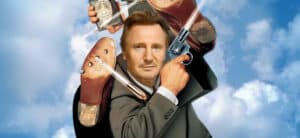

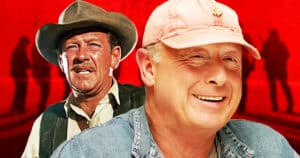
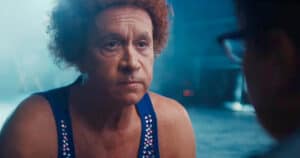
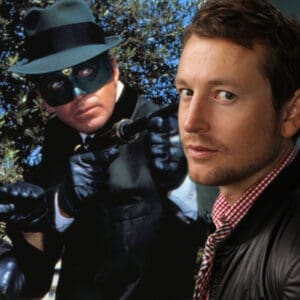

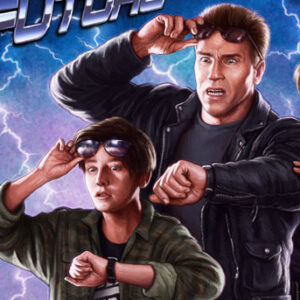
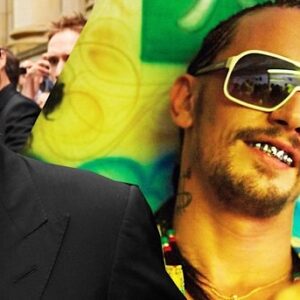
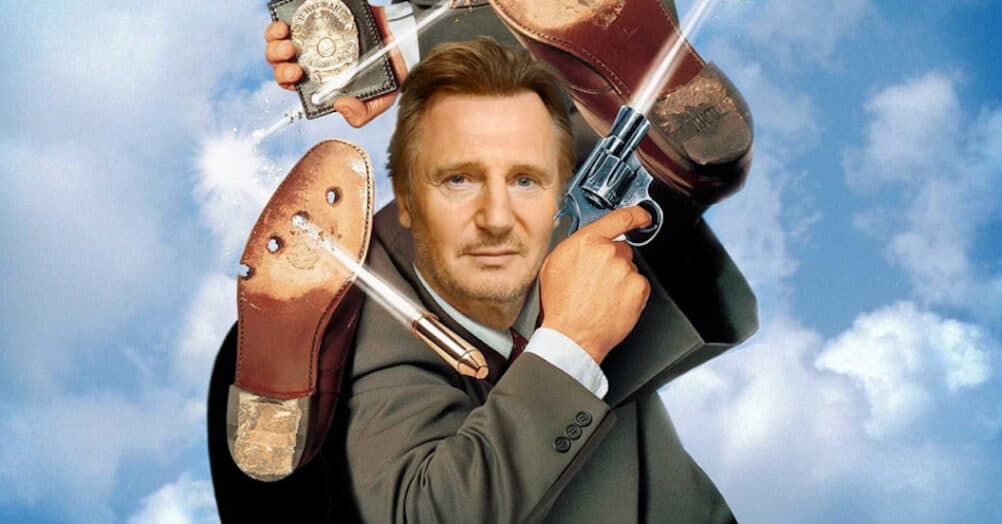

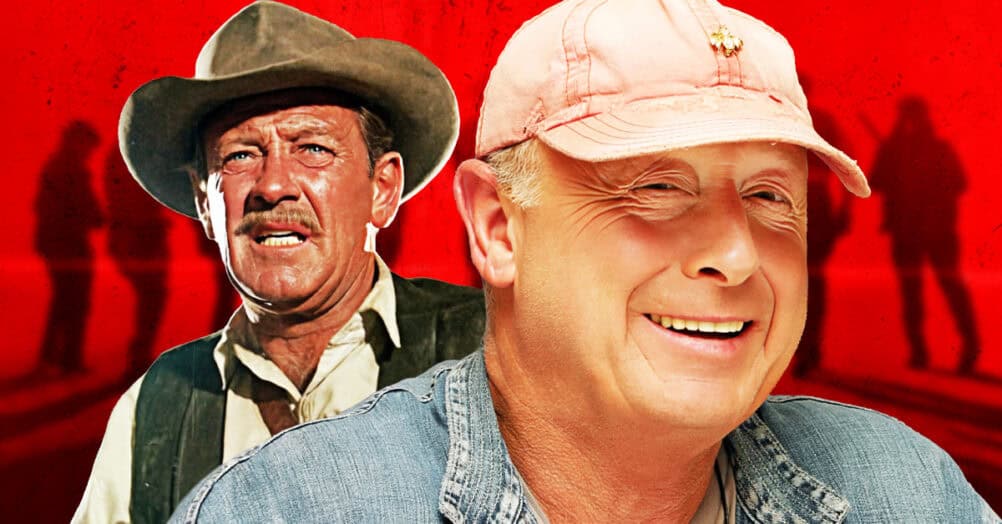
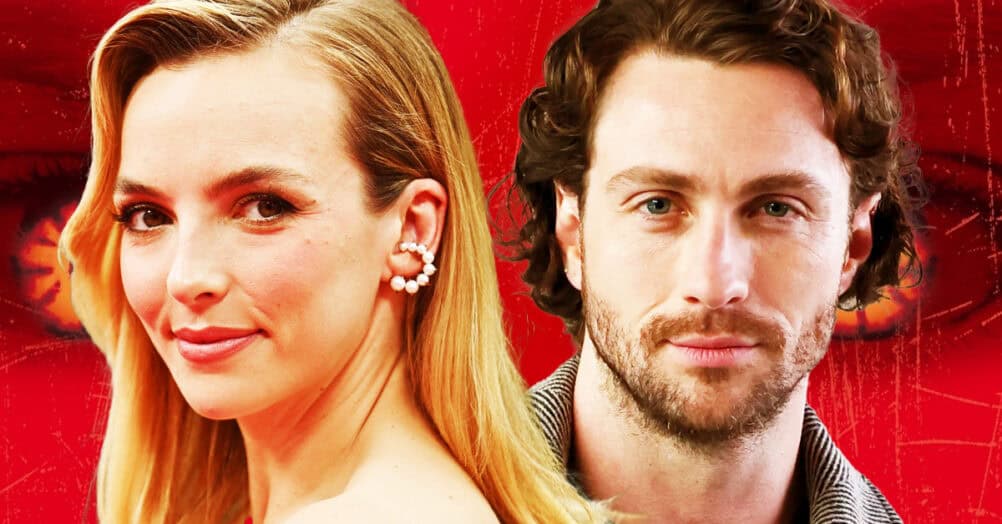
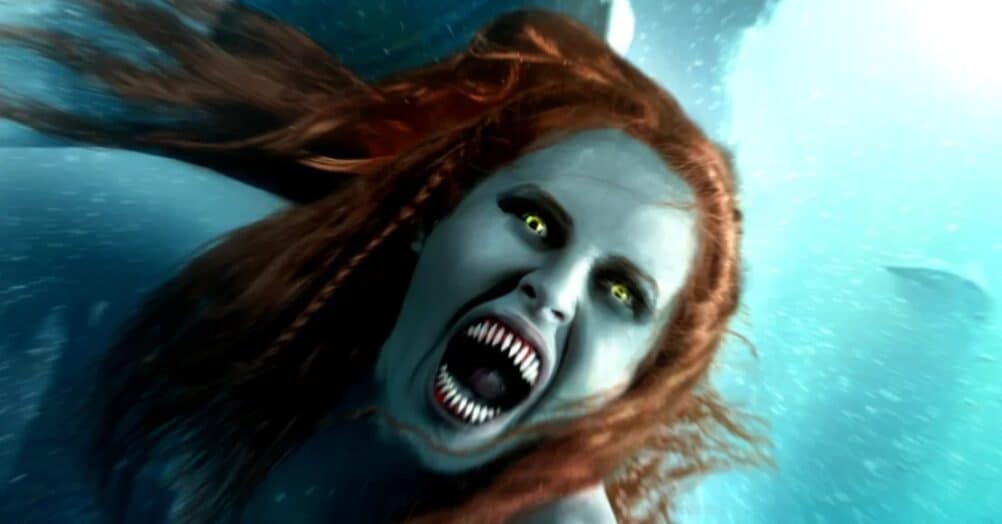
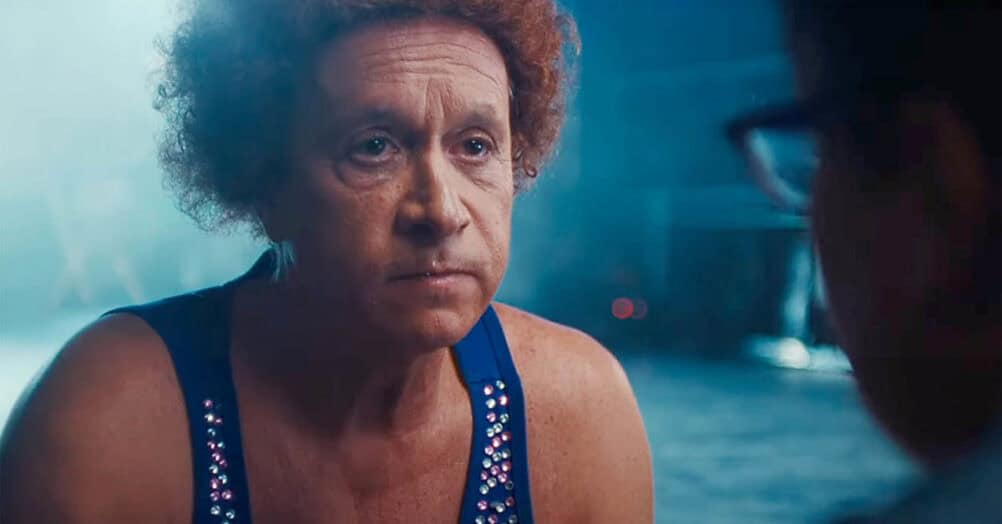
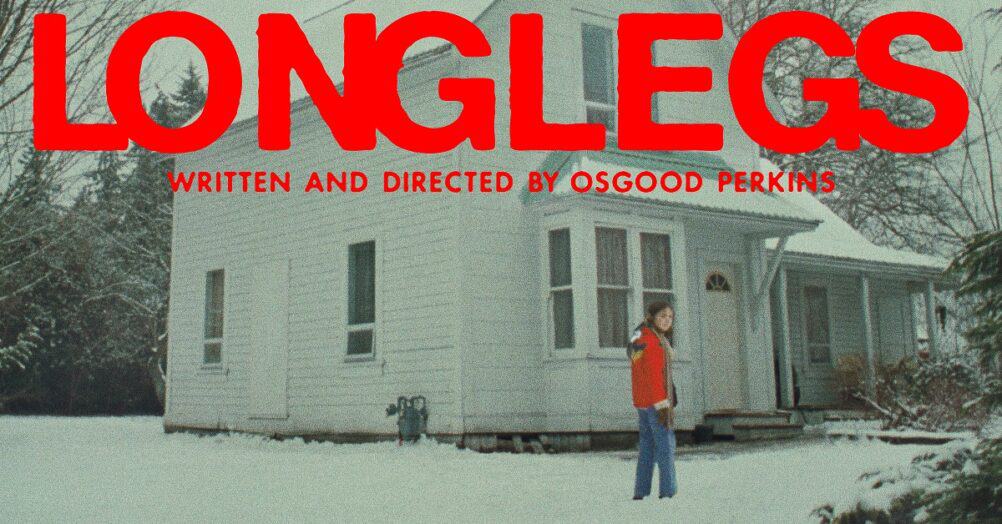
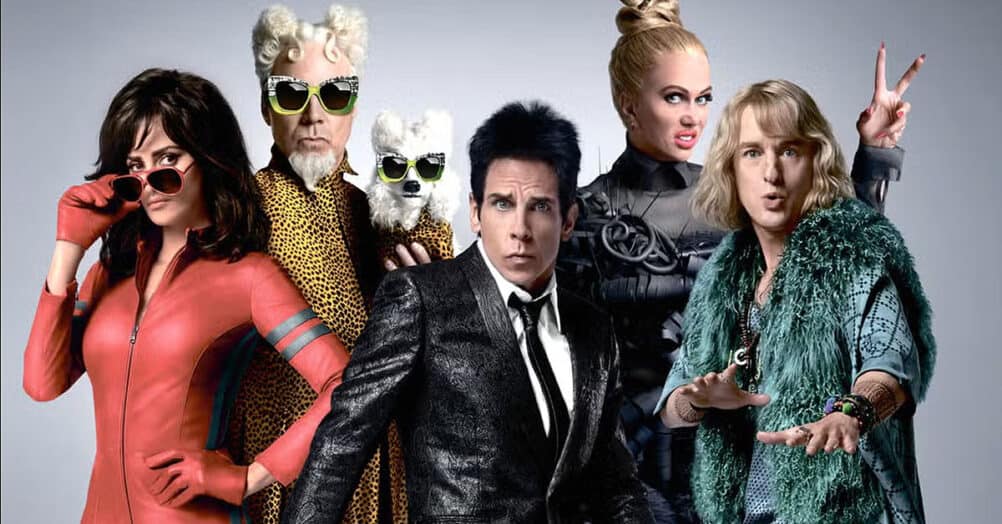
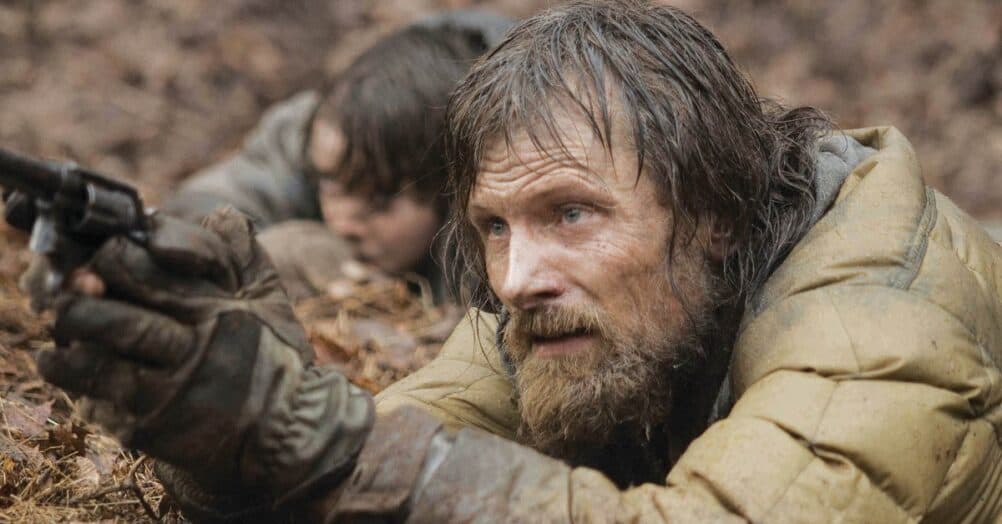

Follow the JOBLO MOVIE NETWORK
Follow us on YOUTUBE
Follow ARROW IN THE HEAD
Follow AITH on YOUTUBE